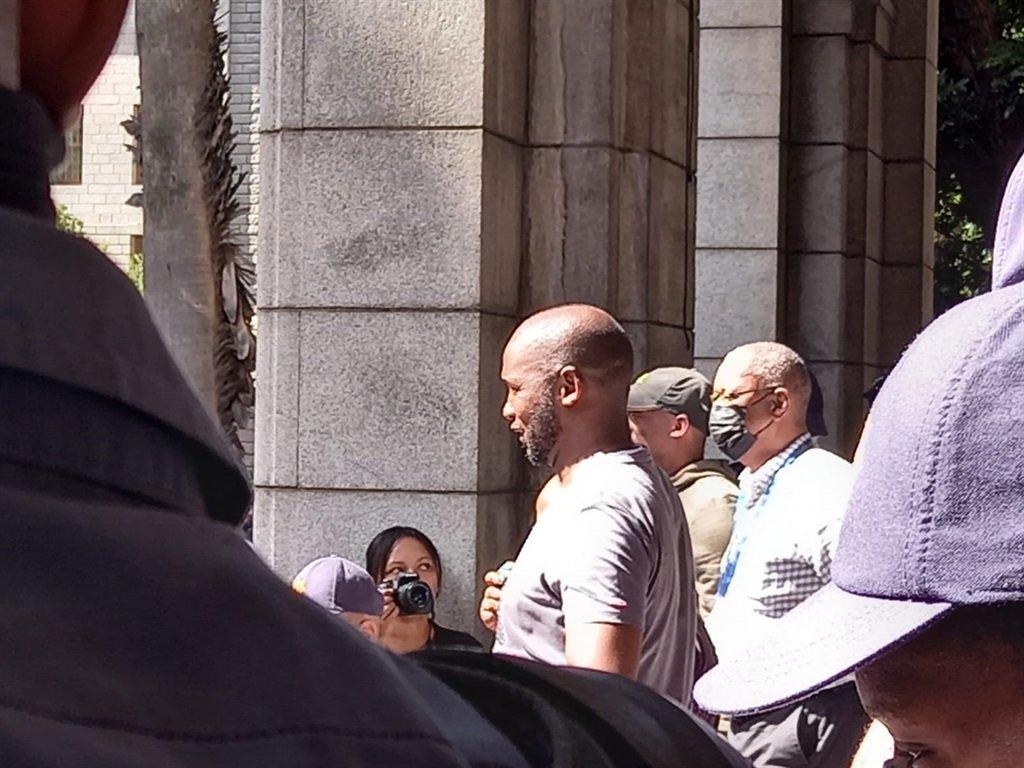Africa-Press – South-Africa. The South African National Taxi Council’s (Santaco) new chairperson for the Western Cape, Mandla Hermanus, had to wait until he finished school before his taxi driver dad would let him get a driver’s licence.
Speaking to News24 after his recent election to the post, Hermanus said his father insisted that the Hermanus siblings finish school first, before setting foot in the ranks that he spent extremely long hours in to provide for the family.
Taking the wheel decades later as Santaco’s Western Cape chairperson, Hermanus, of the Cape Amalgamated Taxi Association (Cata), is a second generation taxi operator and has his work cut out for him in his new role.
After a brutal period in the taxi industry, one of Hermanus’ main tasks will be to help keep passengers and operators happy through rollercoaster fuel prices, and the sudden disputes that flare up between associations.
Last year, drivers, passengers and bystanders were killed as shots flew in a route dispute that dragged on for months.
Both Cata and the Congress of Democratic Taxi Associations (Codeta) lost members to the violence.
Hermanus says things have improved vastly since then.
“We are in a good space with Codeta. Yesterday (Monday), we had a general meeting among ordinary operators, and we agreed: ‘Let’s bring an end to the violence’.
“It was well received. Everybody is tired of the violence. People just want to get on with their lives. The violence has an ongoing financial impact.”
For Hermanus, the intricacies of the taxi business are not new, with his father getting up at 03:00 every day to start work with his own taxi, and finally arriving home for dinner at 20:00.
Hermanus said that, growing up, the Hermanus siblings were not allowed to get their licences until they had finished school.
“He didn’t want any of us kids near the taxi rank,” he said. “Education was very important to him.”
From Nyanga, Cape Town, Hermanus’ initial career path from 1994 was to train in the new field of computerised, administrative work. He later became a clerk and data capturer for retail brand, Edgars.
After that, he joined the National Library of South Africa, starting as a programme administrator, working in the heritage programme, and then becoming a communications officer.
He left the national library and worked in the Southern African Institute for Advancement, where he trained NGOs in fundraising skills.
When his father died, he took over the running of the business for his mother, eventually bought his own taxi, and was asked to join Cata.
However, he quickly learned that he was not cut out to be a driver.
He laughs:
And he found that customers do not like slow drivers.
He noticed that there were no offices at the ranks and nobody to help the drivers and operators with the enormous amount of admin they had to do. With years of expertise in administration, he was employed to run the administrative side of Cata’s operations.
“There is this notion that taxi people are rude, arrogant and heartless,” he said.
“I saw how the regular passengers had built relationships with their regular operators. If somebody had no money a few days before payday, the driver would let them travel on the agreement that they would pay it back,” he said.
He also learnt that there was always a “crazy driver”, who expected everyone to give way to him.
One of his aims, as Santaco chair for the province for the next four years, is to get the authorities to provide more dedicated minibus taxi lanes, and to have law enforcement actively keeping other traffic out of the lanes.
He said:
They also wish the City of Cape Town would open its priority lane for public transport on the N2 for the outgoing afternoon rush hour, instead of just for the incoming commute.
Another issue he will have to deal with is speculation that taxi operators are behind the torching of trains and buses, and the recent attacks on Intercape buses, so that they make more money.
He said the trains are feeders for taxis and, when trains are torched, the taxis lose enormous amounts of income, and commuters are severely delayed.
“They (taxis) will never have the capacity (to take as many passengers as trains), and there is no space at the ranks for the number of taxis that would be needed,” he said.
The umbrella body for the associations will also have to deal with the perennial complaints that taxi associations engage in extortion and route bullying.
One of the issues currently festering is not being able to get permits for a route to the fast-growing warehouse belt in Brackengate, north of Cape Town – not even temporary permits.
“Not a single operating licence has been issued to take people to and from work,” noted Hermanus.
He said:
He questioned why the Golden Arrow Bus Service got a temporary permit to serve the suspended B97 to Paarl, but taxis are told the regulations do not allow for temporary permits for taxis.
With the spotlight on attacks on Intercape buses this past week, Hermanus said Cata, Codeta and Santaco met to discuss the allegations that taxi operators are behind it.
He said they do not know who is responsible for the attacks.
He explained that, in the Western Cape, taxis predominantly ply local routes, with inter-province travel mostly for families or churches who book for a special event.
“We would have nothing to gain by disrupting those services,” said Hermanus.
In the meantime, Daylin Mitchell, the MEC for the Western Cape’s new Department of Mobility, congratulated the new office bearers and the provincial executive committee, and acknowledged the accomplishments of the industry.
He commended taxi drivers for making sure healthcare workers got to work and back during the Covid-19 pandemic, and making sure commuters could still get around to help the economy.
For More News And Analysis About South-Africa Follow Africa-Press






